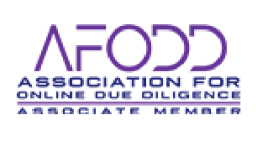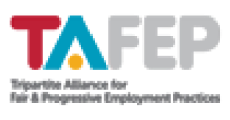Digital HR Strategies – Work 3.0 is already here, and it’s driven by HR. Today’s HR professionals are leading people-focused digital transformation towards the Future of Work. Their role has changed dramatically in recent years, with technology empowering HR to help organisations better understand people and activate their talent for more successful businesses and happier employees.
The rise of digitalisation is especially useful right now, with the COVID-19 situation meaning many companies are relying on technology to allow their people to work from home.
Accelerating the implementation of 3 successful HR strategies in the new digital business landscape:
Diversity and inclusion through technology
The push for diversity and inclusion (D&I) in the workplace is stronger than ever, forming a critical part of social license to operate for business. We also know that organisations that embrace diversity perform better.
HR has an enormous role to play in making D&I happen, but unconscious biases can put a spanner in the works. Luckily, AI can remove bias in writing job descriptions and searching for candidates, focusing instead on skills and experience for a more diverse and fair talent pipeline.
Analytics also has a key role to play; at-a-glance real-time information enables HR professionals to understand current D&I performance and identify issues. These insights can be applied to hiring and retention, attracting diverse talent, and building up fairer, better workplaces.
Managing remote teams effectively
Whether companies are harnessing talent from across the world to gain a competitive edge, or simply trying to manage work-from-home situations due to public health emergencies like COVID-19, leaders must learn a new skill set: remote management.
Upwork’s Future Workforce Report finds 73 percent of all teams will have remote workers by 2028, and 75 percent of employees already working remotely plan to continue the practice for the rest of their careers. Similarly, the report finds that 99 percent of people surveyed would like to work from home.
Remote working benefits both workers and companies, increasing flexibility, decreasing overheads, and ensuring business continuity. But with it comes a new set of challenges – less interaction within teams, less ability to supervise workers, and communication difficulties.
Technology is increasingly used to measure productivity rather than working time, and output will become more important than hours. Businesses will expect HR to produce results-driven performance analysis while building an employee experience for remote workers that is as attractive as that of in-office colleagues.
Automation as the new digital HR strategies
Many time-consuming HR strategies can now be performed at the click of a button, thanks to digital automation. In the area of recruitment, productivity and efficiency can be significantly improved by using intelligent recruitment technology.
When making a new hire for example, rather than waiting for all members of the hiring team to submit their feedback, automated HR technology enables candidates to move quickly through the pipeline. Recruiters can send fewer internal messages and instead focus their efforts on making a human connection.
When it comes to retention, HR automation is often enabled through data. Real-time metrics identify patterns interfering with retention or performance, enabling leaders to make decisions faster and address issues proactively rather than reactively.
Data-driven HR automation allows leaders to gain predictive, forward-looking insights into how a business’s people are performing. Time saved through automated systems together with data-driven insights, allows HR leaders to focus on delivering strategic business goals.
Where to from here?
As the HR department increasingly adopts technology, it can be easy to forget that Human Resources is about humans! Businesses often introduce new technologies or ways of doing things without effective training or building buy-in.
Workers can fear change, while HR professionals lose touch with their people in a sea of data. Without a clear people focus, technology and analytics fall flat. For successful technology projects, leaders must understand the needs of workers and companies in an ever-changing world and think strategically about how to meet those needs.
Key takeaways:
- Tech and analytics are powering better decisions. By finding patterns in data and identifying trends, HR professionals can gain valuable insight from their digital HR strategies for better business outcomes. HR tech and analytics are already being used to build more robust digital HR strategies, increase retention, mitigate risk, and even overcome bias in the selection process.
- An increasingly distributed workforce comes with unique benefits and challenges. The remote workforce is here to stay; HR strategies teams or professionals can utilise digital HR strategies to track results on an employee, team, and project level, maintain productivity and build employee engagement regardless of location.
- Never lose sight of the human factor. Don’t adopt technology for technology’s sake – stay outcomes-focused and be strategic. Think about the problems are you aiming to solve and work backward to find the right tools for your digital HR strategies. HR is still and will always be about people.






